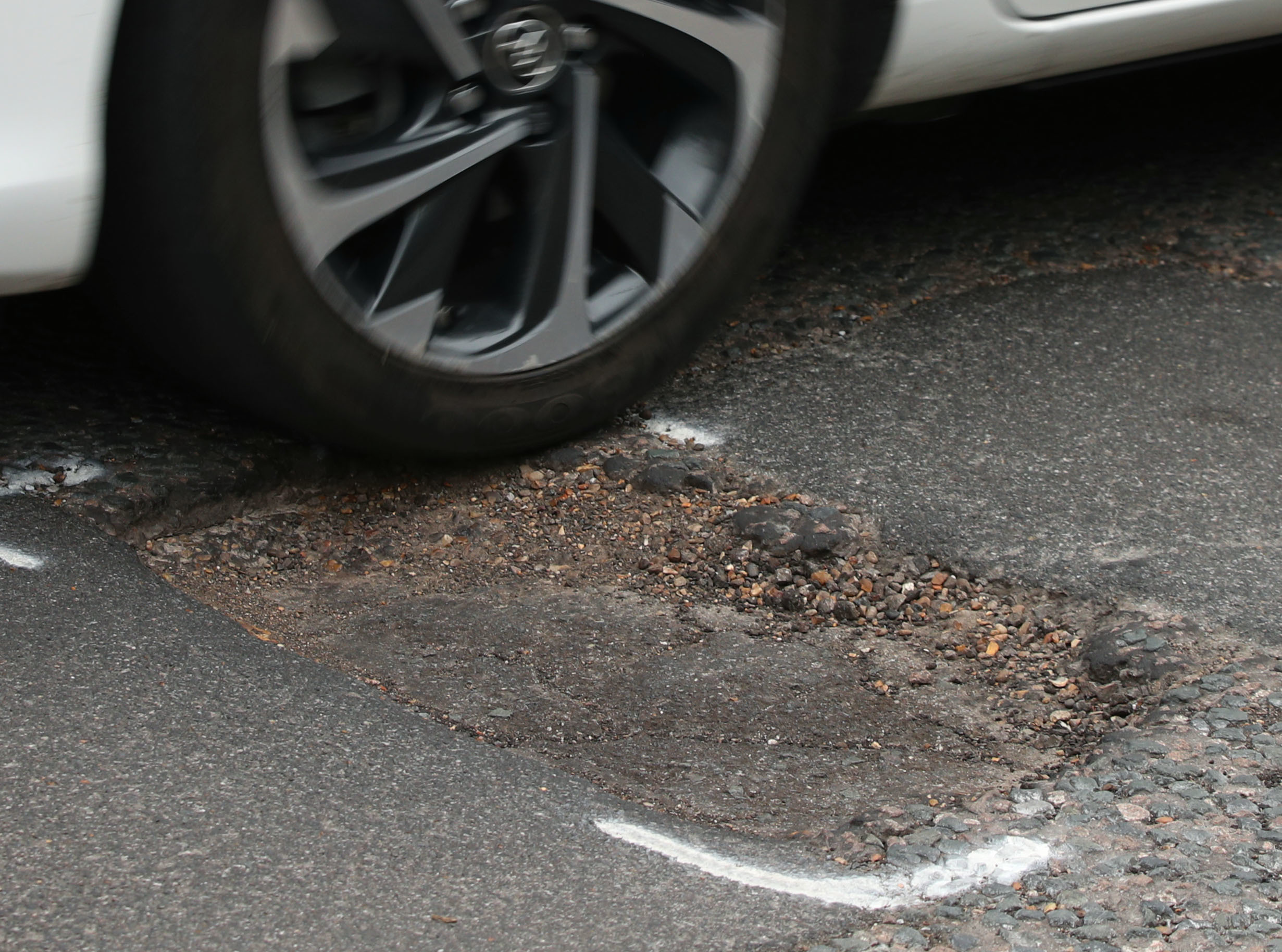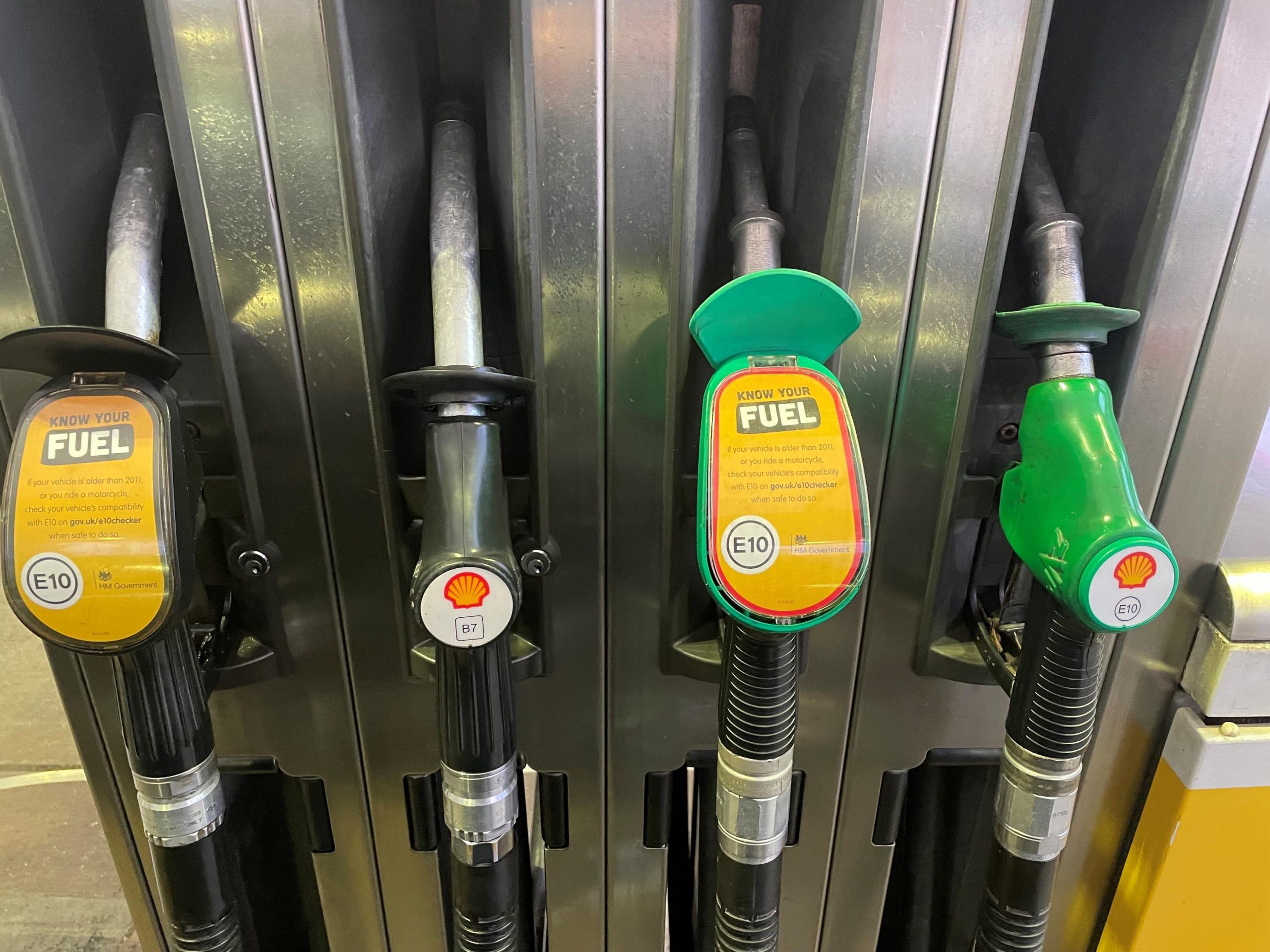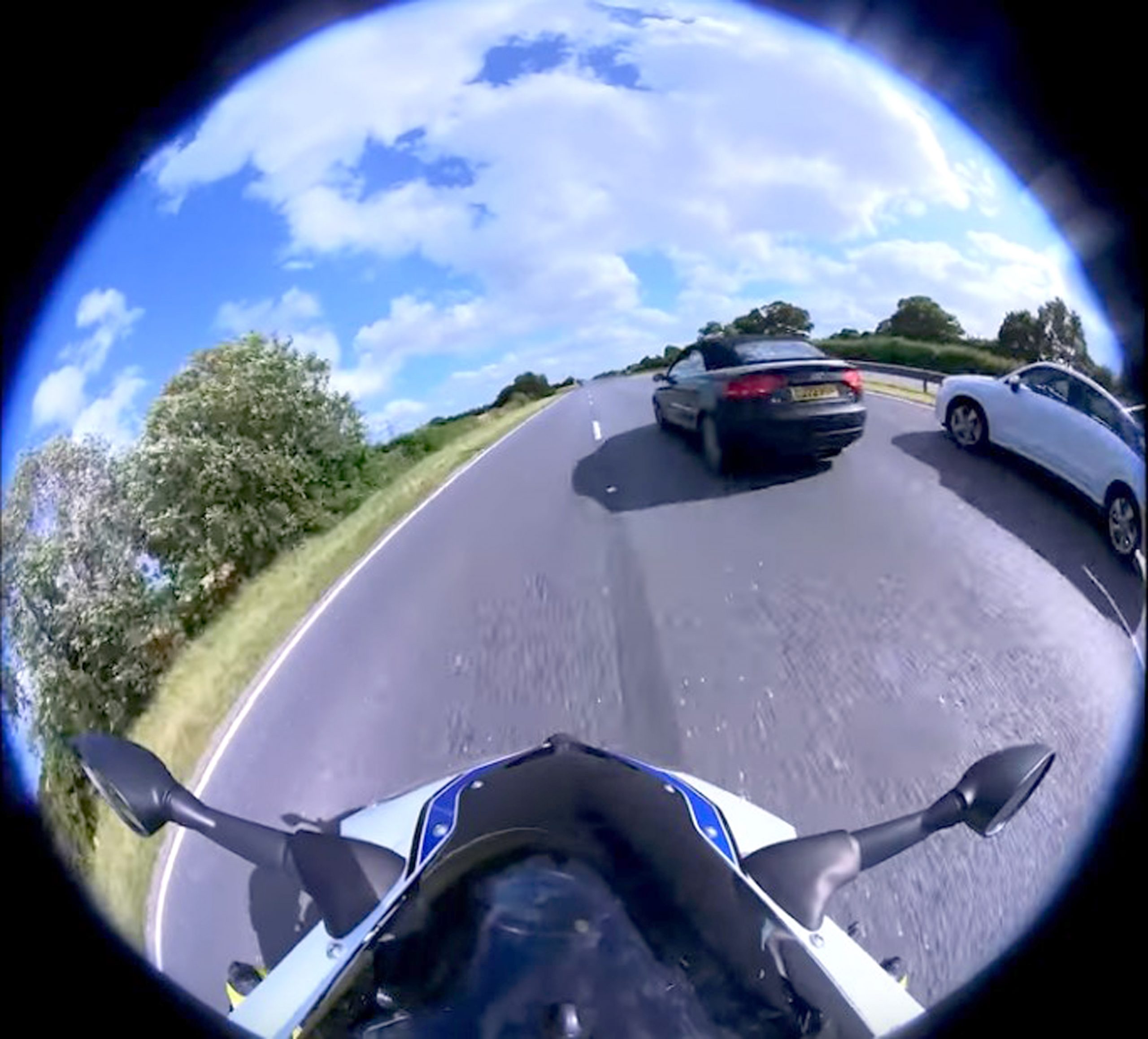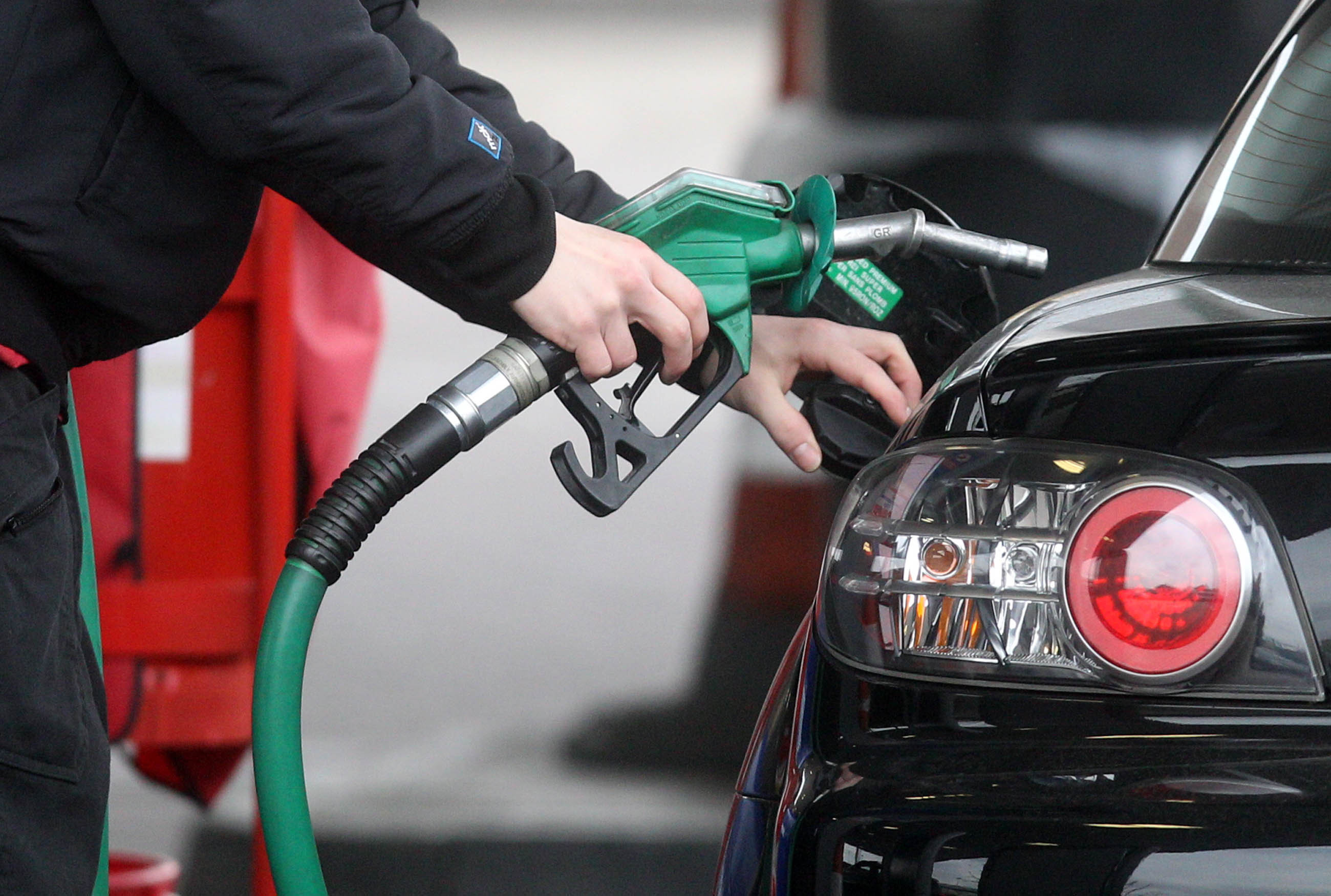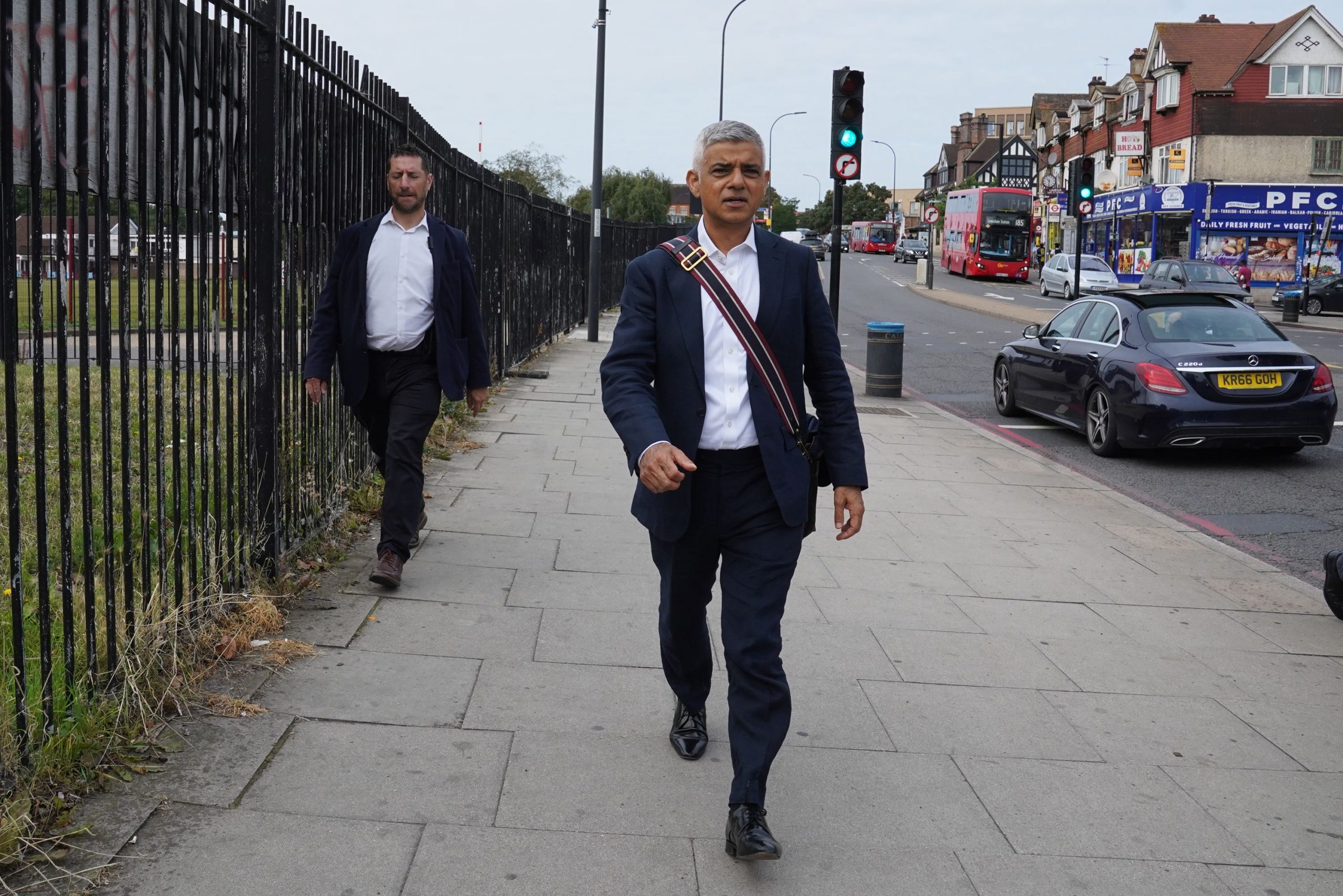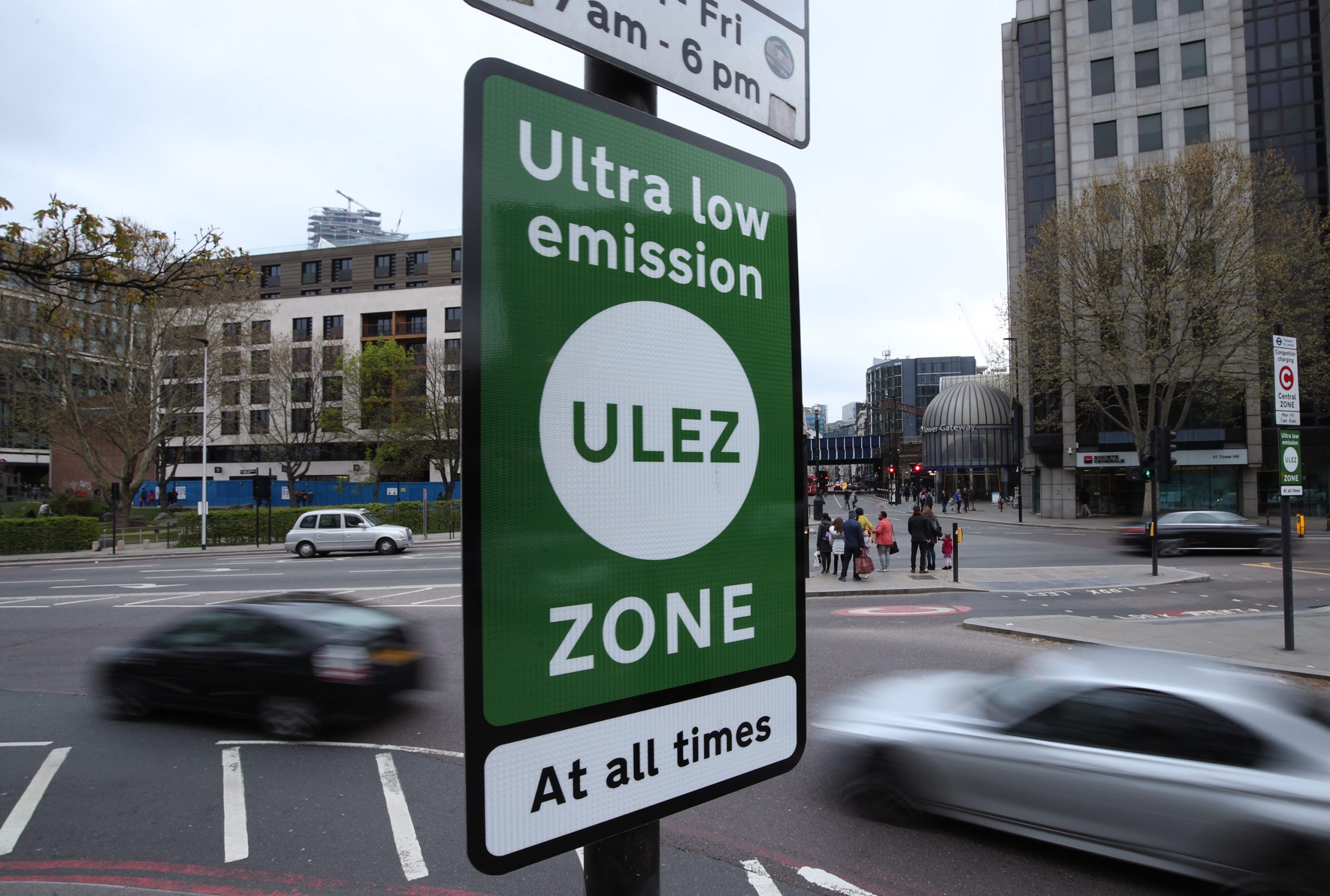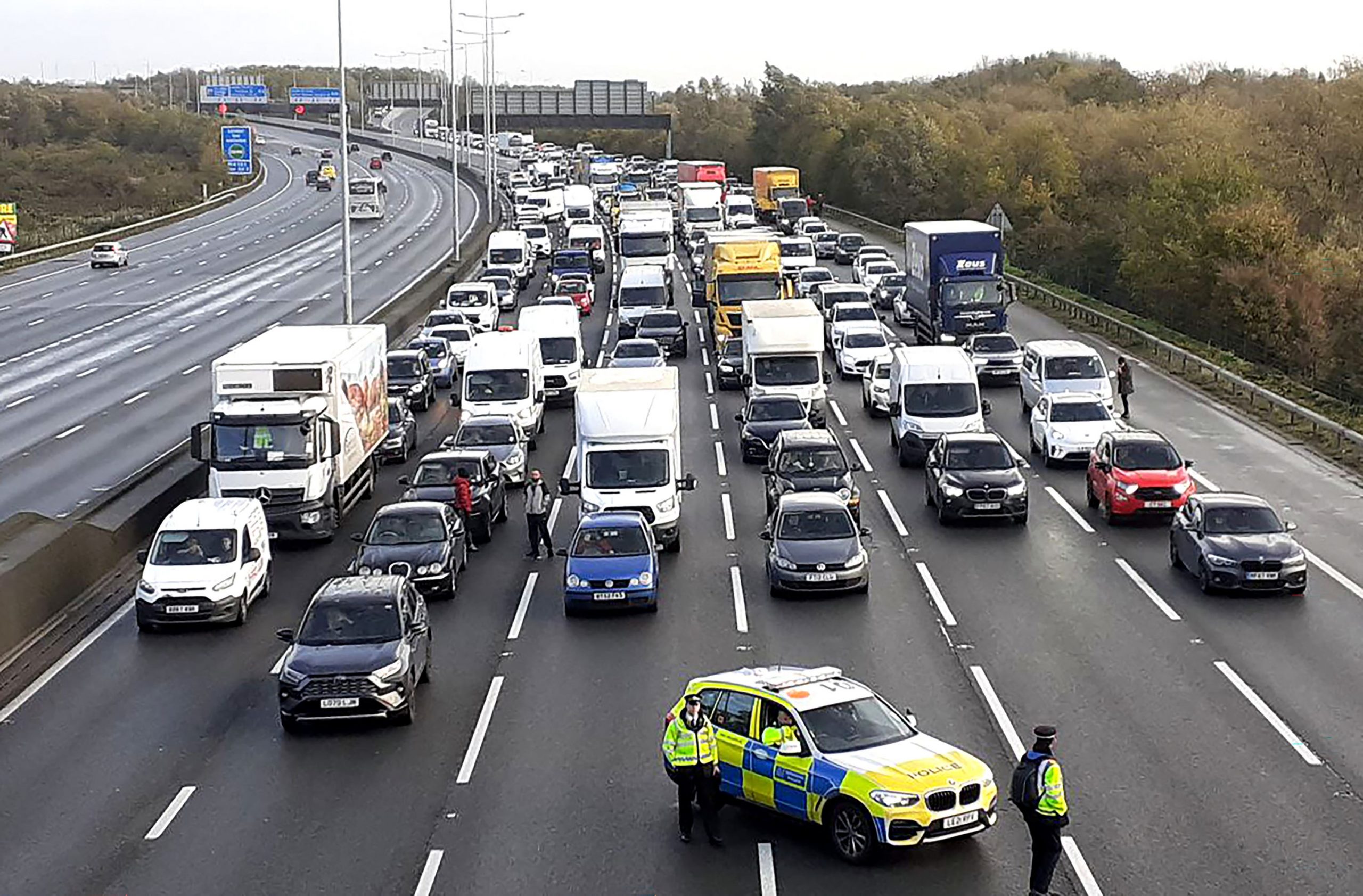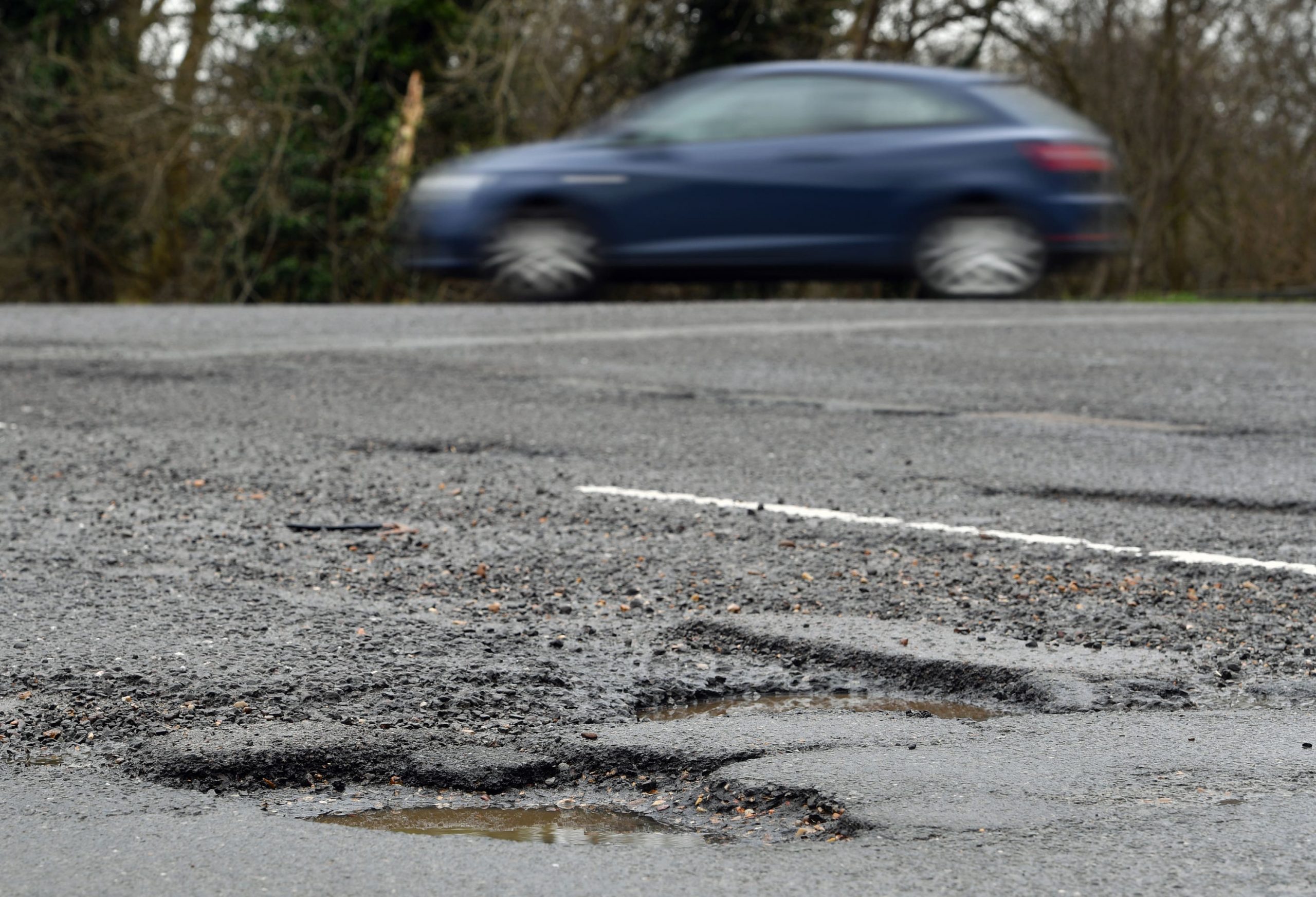Vehicle breakdowns caused by potholes have reached a record high due to the “substandard state” of local roads, figures suggest.
The RAC said it received 5,978 call-outs to breakdowns due to poor road surfaces in the UK between July and September.
That was the most for that quarter since the RAC began recording the data in 2006.
It represents a 46% increase from the 4,085 incidents in the same period last year.
Common vehicle problems caused by potholes include damaged shock absorbers, broken suspension springs and distorted wheels.
The cost of bringing pothole-plagued local roads in England and Wales up to scratch has been estimated at £14 billion.
Potholes are often formed when water enters cracks in the road surface, then freezes and expands.
Garage repair data analysed by the RAC shows drivers are paying an average of £440 if their car needs fixing after hitting a pothole for any damage more serious than a puncture.
RAC head of policy Simon Williams said: “Our analysis of pothole-related breakdowns is sadly once again showing that the substandard state of the country’s local roads is causing a world of pain for drivers, let alone those on two wheels.
“Fortunately, the Government has promised £8.3 billion for local highways authorities which should give them the certainty of funding they need to be able to plan longer-term road maintenance work.
“We very much look forward to finding out exactly how the money will be allocated.
“We have long argued that it’s not just a question of filling potholes, it’s about getting the roads in the worst condition resurfaced.
“Then, it’s vital that more councils start to make greater use of surface treatments which can cost effectively extend the lives of these roads.”
Last month, the Government said it will provide £8.3 billion of funding to “fix the blight of potholes on roads up and down the country” after scrapping the HS2 rail project north of Birmingham.
A Department for Transport spokesman said: “The decision to redirect HS2 funding to other transport projects means that an extra £8.3 billion has been freed up to help local authorities fill potholes and resurface roads across the country, which is on top of the near £1 billion the Government already provides on average every year.
“We are investing a record amount of funding into tackling potholes and resurfacing roads, which will see highway maintenance funding to local authorities almost doubled over the next decade.”
Darren Rodwell, transport spokesperson for the Local Government Association (LGA), said: “The LGA has long-called for longer term funding to tackle the issues facing our roads and we believe that Government should award council highways departments with five-yearly funding allocations to give more certainty, bringing councils on a par with National Highways.
“Councils much prefer to invest in more cost-effective and resilient resurfacing than retrospectively dealing with potholes.
“The recently announced £8.3 billion additional funding for roads maintenance should help to bring more of our local road network up to scratch, and help deal with the £14 billion backlog of repairs.
“We await to see more details of the funding plan.”

